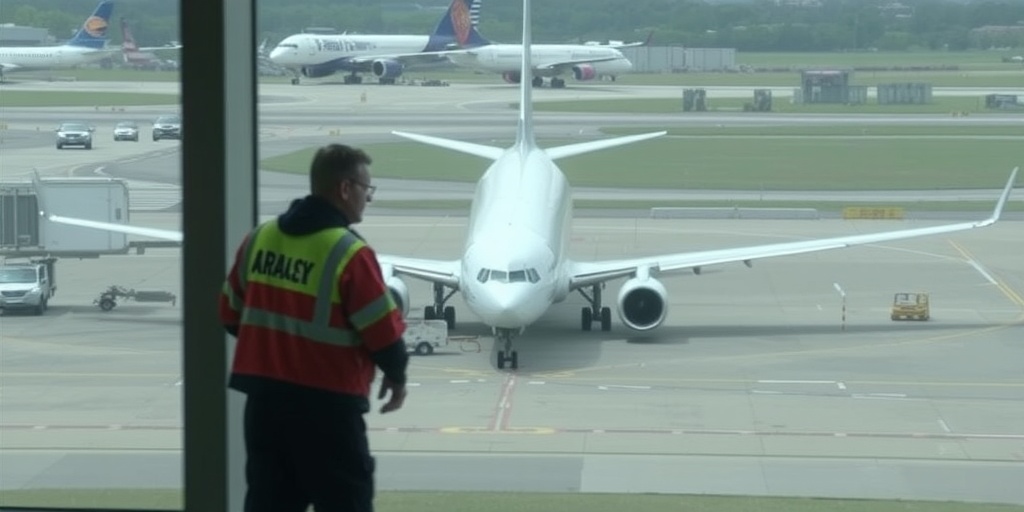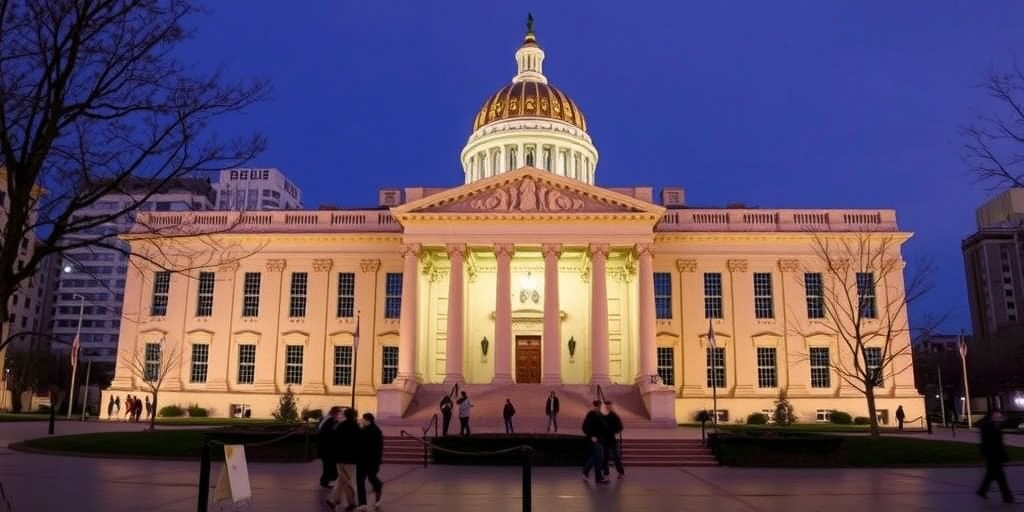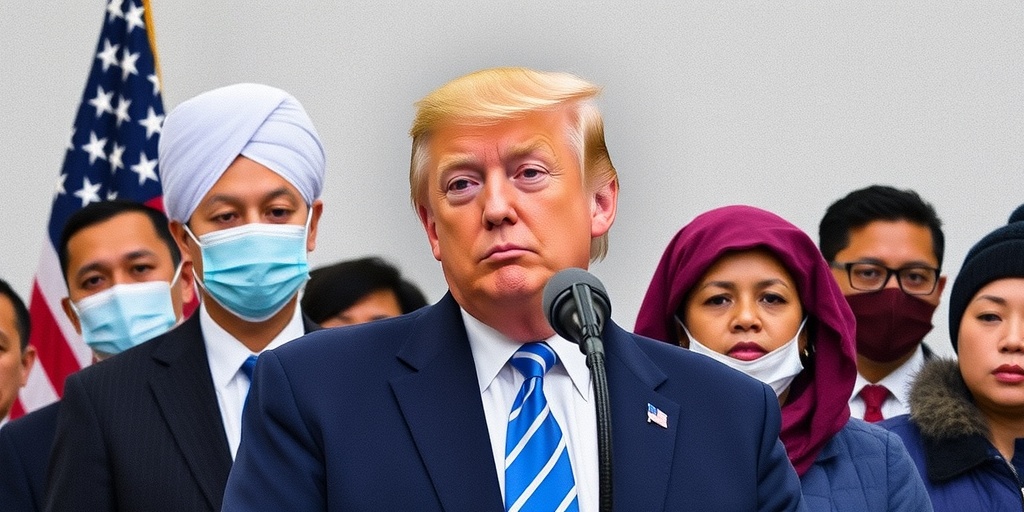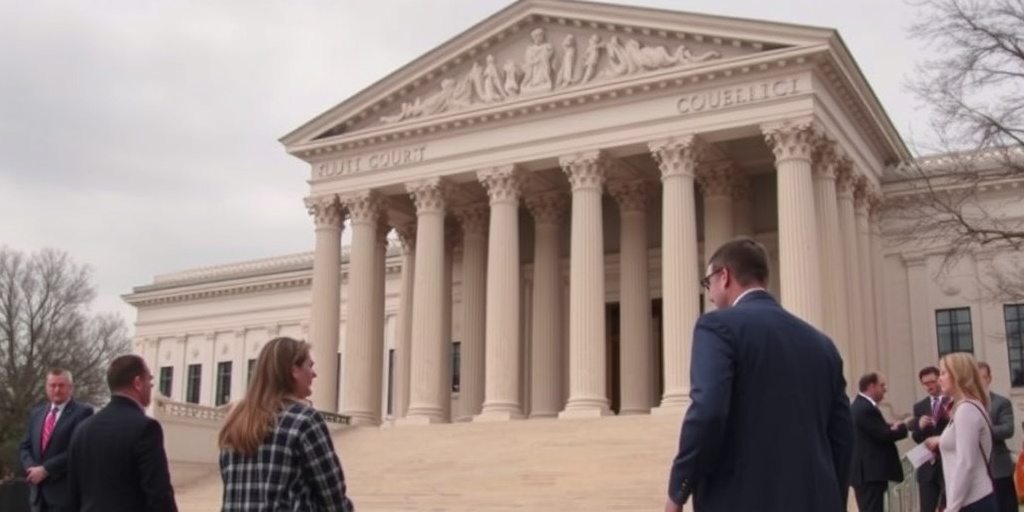Now Reading: Trump Administration Rapidly Evacuates Migrants from Guantánamo
-
01
Trump Administration Rapidly Evacuates Migrants from Guantánamo
Trump Administration Rapidly Evacuates Migrants from Guantánamo

Venezuelan Migrants Transferred from Guantánamo Bay Amid Legal Controversies
In a swift move that has garnered significant attention, the Trump administration announced on Thursday that it has transferred all Venezuelan migrants from the U.S. military base at Guantánamo Bay, Cuba. This unexpected development comes on the heels of a controversial operation that saw the administration transport Venezuelan migrants to the naval base just weeks prior.
Two charter planes operated by Global X executed the transfers on Thursday morning. These flights transported the majority of the migrants to an airstrip in Honduras, where they were subsequently set to board a Venezuelan aircraft for repatriation back to their home country. Tricia McLaughlin, a spokesperson for the Department of Homeland Security (DHS), confirmed that 177 of the migrants had been handed over to Venezuelan authorities. Meanwhile, one individual was moved to an immigration detention facility within the United States, implying that the administration intends to manage the remaining cases directly rather than at Guantánamo.
A recent court declaration made earlier on the same day by an official from Immigration and Customs Enforcement (ICE) indicated that there had been 178 Venezuelans at Guantánamo Bay prior to the transfers. This raises further questions regarding the handling of immigration cases and the legal jurisdiction surrounding such operations. It remains uncertain whether the Trump administration has plans to send additional migrants to the Cuban base, leaving many observers apprehensive about the future of immigrant detention and the treatment of those seeking refuge.
The Guantánamo operation has sparked a myriad of legal questions regarding the U.S. government’s authority to detain individuals previously held in ICE facilities and transport them to a military base for continued detention. Critics, including immigrant rights lawyers, have raised alarms about the legality of this practice. In fact, legal representatives have already sought access to the migrants held in Guantánamo and have indicated plans to challenge the Trump administration’s policies in broader legal forums.
The abrupt nature of these events has been labeled alarming by human rights groups, who have expressed outrage over the treatment of migrants in this context. They argue that using Guantánamo Bay as a venue for immigrant detention, especially for those fleeing dire circumstances in Venezuela, sets a dangerous precedent for the U.S. immigration system. Advocates assert that the conditions surrounding these migrants must adhere to international human rights standards, which are often alleged to be violated in such facilities.
As the situation continues to unfold, the implications for Venezuelan migrants caught in this web of policy and legal ambiguity remain critical. Many have fled their home country due to economic instability, political repression, and humanitarian crises, only to find themselves facing complex immigration challenges upon reaching the United States.
In the face of ongoing political discourse surrounding immigration in the U.S., this incident may serve as a pivotal moment for discussions on how the government manages migrant populations, particularly in light of growing opposition to the utilization of military facilities for civilian detention. As the Trump administration navigates these challenges, attention will focus on the legal, moral, and humanitarian consequences of its decisions.
The human rights community watches closely, as these developments will not only affect the lives of the individual migrants involved but could also set implications for broader immigration policies. Experts caution that any missteps could exacerbate existing tensions within the political arena regarding immigration reform, especially as the country prepares for upcoming elections.
In summary, while the Trump administration’s recent transfer of Venezuelan migrants from Guantánamo Bay alleviates immediate concerns regarding the detainees, it highlights the ongoing complexities and legal uncertainties surrounding U.S. immigration policy—a matter that is far from resolved. The focus now shifts to how this administration and future leadership will address the multifaceted challenges posed by migrant populations in need of protection and the ethical considerations surrounding their treatment. Eric Schmitt’s reporting from Washington and Albert Sun’s from New York contributed to this understanding of a significant and evolving immigration issue.
Stay Informed With the Latest & Most Important News
Previous Post
Next Post
-
 01New technology breakthrough has everyone talking right now
01New technology breakthrough has everyone talking right now -
 02Unbelievable life hack everyone needs to try today
02Unbelievable life hack everyone needs to try today -
 03Fascinating discovery found buried deep beneath the ocean
03Fascinating discovery found buried deep beneath the ocean -
 04Man invents genius device that solves everyday problems
04Man invents genius device that solves everyday problems -
 05Shocking discovery that changes what we know forever
05Shocking discovery that changes what we know forever -
 06Internet goes wild over celebrity’s unexpected fashion choice
06Internet goes wild over celebrity’s unexpected fashion choice -
 07Rare animal sighting stuns scientists and wildlife lovers
07Rare animal sighting stuns scientists and wildlife lovers





















